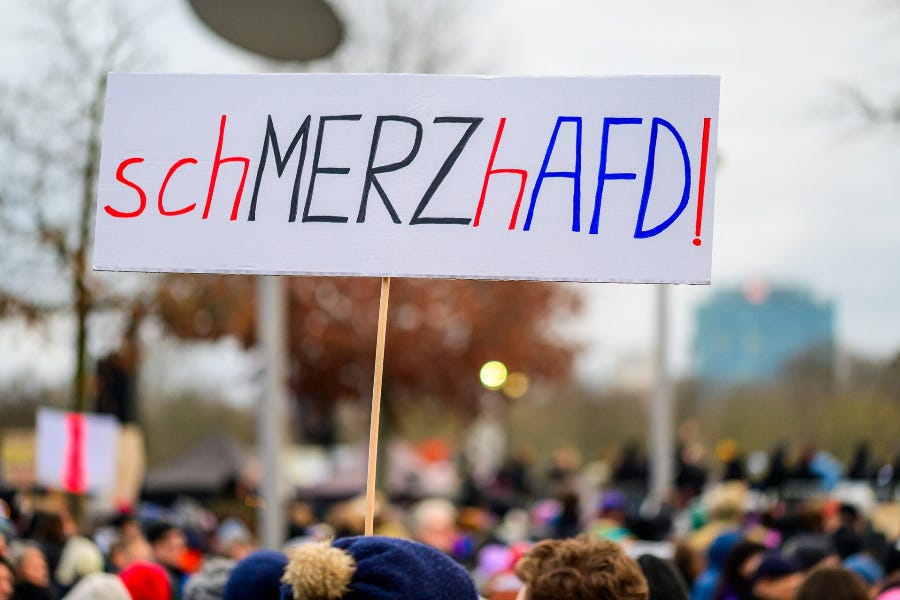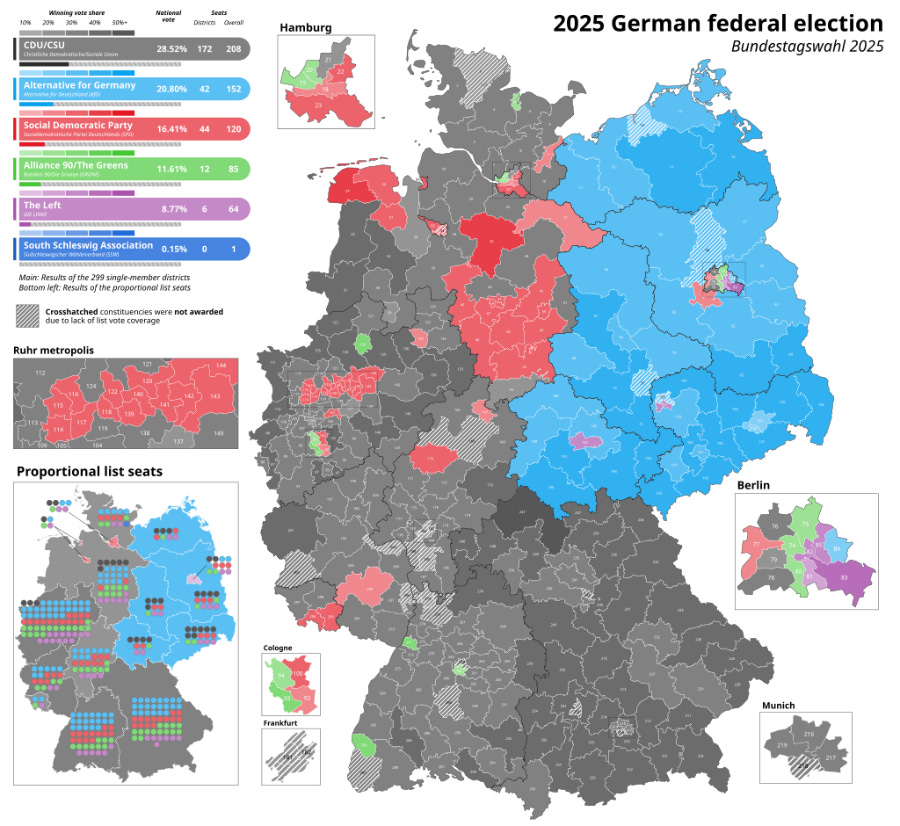What the election result means for Germany’s bishops
The bishops took the unusual step of singling out a political party for condemnation - did Catholics listen?
In 2024, Germany’s Catholic bishops took the unusual step of singling out a political party for explicit condemnation.

They said the Alternative for Germany (AfD) party was “dominated by a racial-nationalist attitude” that was incompatible with Christian teaching. And they argued that Christians could play no role in “right-wing extremist parties” or vote for them.
Did Germany’s Christians listen to the bishops when they went to the polls last Sunday in a snap federal election?
Germany’s conservative Union parties (CDU/CSU) came first in the Feb. 23 election, followed by the AfD, which achieved its best result since it was founded in 2013. That year, it attracted a mere 4.7% of federal election voters. This year, its share rose to 20.8%.
The AfD is widely described as far-right, though its members typically reject the term. It wants a crackdown on immigration, opposes what it calls “the further spread of segregated Islamic parallel societies” within Germany, and says that “unborn children also have a right to life.”
Support for the party, initially confined to the former East Germany, has spread in recent years, following the coronavirus pandemic, the Ukraine war, and a cost of living crisis. At the same time, the Catholic Church in Germany has lost hundreds of thousands of members annually.
What proportion of German Catholics voted for the AfD this time, despite the bishops’ clear opposition to the party?
What happened
The research group Wahlen has analyzed how Catholics, Evangelicals, and religiously unaffiliated Germans voted.
It concluded that the party receiving the most Catholic votes was the CDU/CSU (39%), followed by the AfD (18%), and the Social Democratic Party of Germany (SPD, 15%).
So, a lower proportion of Catholics voted for the AfD than in the general population. But it wasn’t that much lower: just 2.8%. While Catholics were less inclined to vote for the party than others, almost one in five still did.
At the last federal election, in 2021, only 8% of Catholics voted for the AfD, so Catholic support for the party has increased significantly despite the bishops’ increasingly forceful condemnations.
On the face of it, that seems like a terrible failure for the bishops. But it’s worth considering the broader context.
The party receiving the most votes from Evangelicals — that is, members of the Protestant Church in Germany (EKD) — was also the CDU/CSU (29%), followed by the AfD (20%).
In other words, Evangelicals voted for the AfD almost exactly in line with the national average, even though the EKD has also strongly criticized the party.
In January, the EKD and the Catholic Office in Berlin, which lobbies politicians on behalf of the bishops’ conference, issued a joint statement urging the CDU not to break the political taboo of cooperating with the AfD on legislation restricting migration. EKD and Catholic leaders are therefore on the same political wavelength. But the EKD seems to have exerted less influence over its members in the federal election.
Meanwhile, the party receiving the most votes from Germans with no religious affiliation was the AfD (24%), followed by the CDU/CSU (22%).
While German Catholics were less likely to opt for the AfD than the average voter, Evangelicals were just as likely, and the religiously unaffiliated even more likely.

